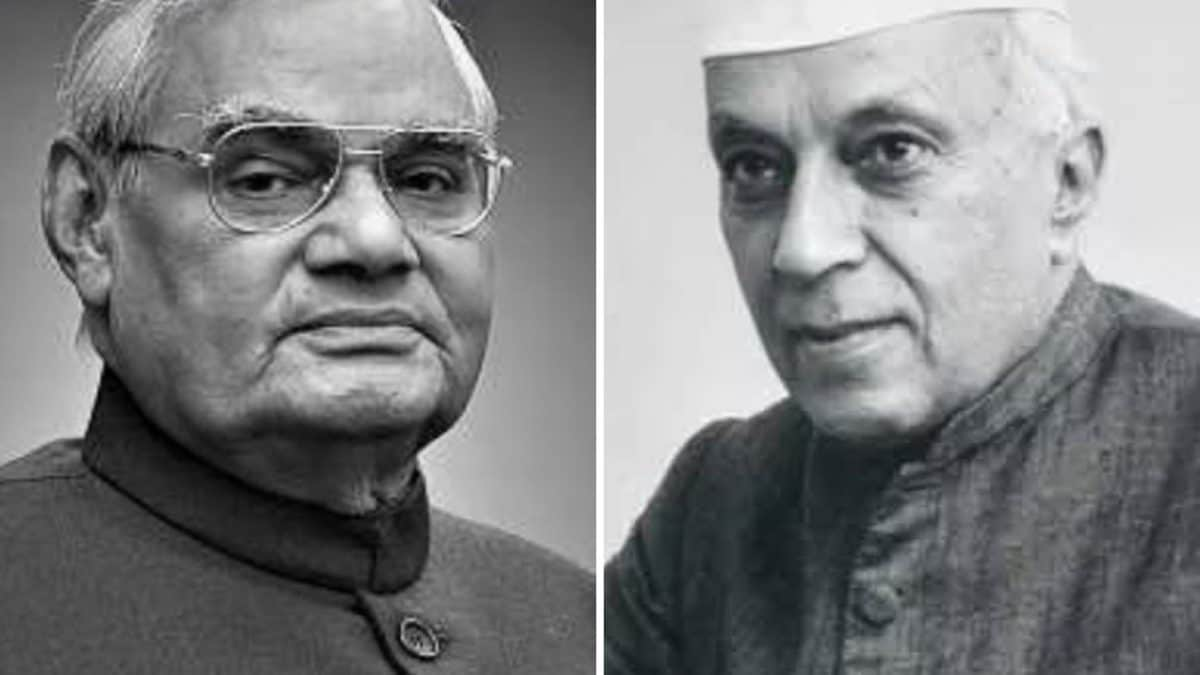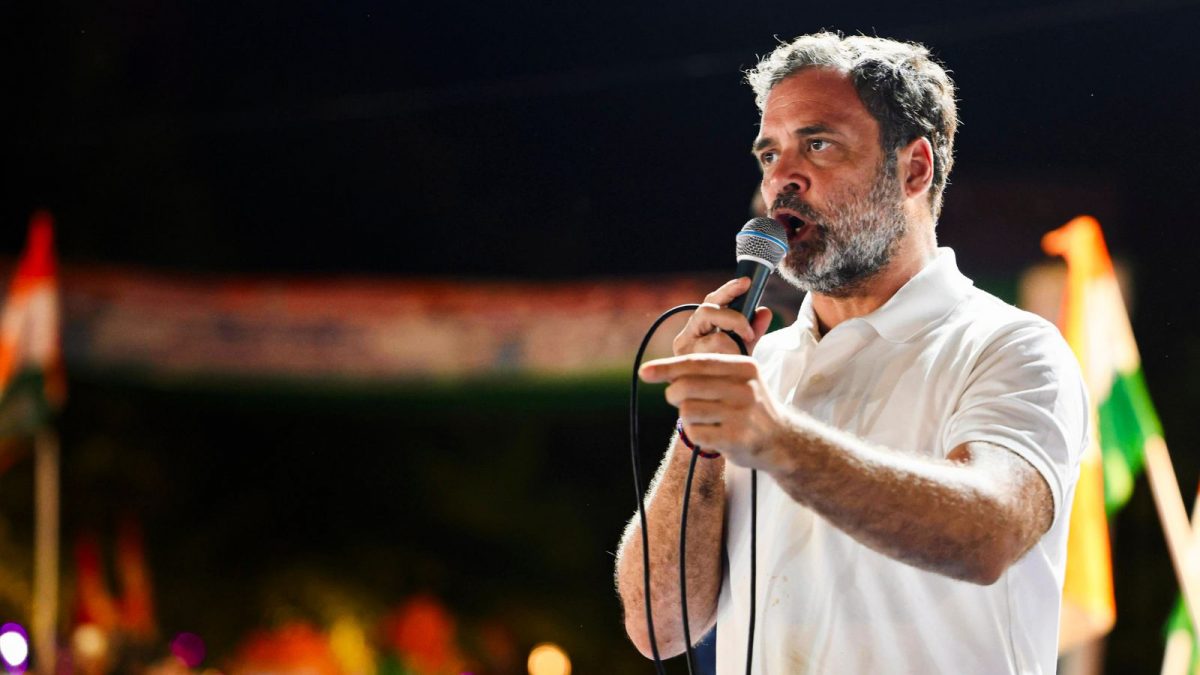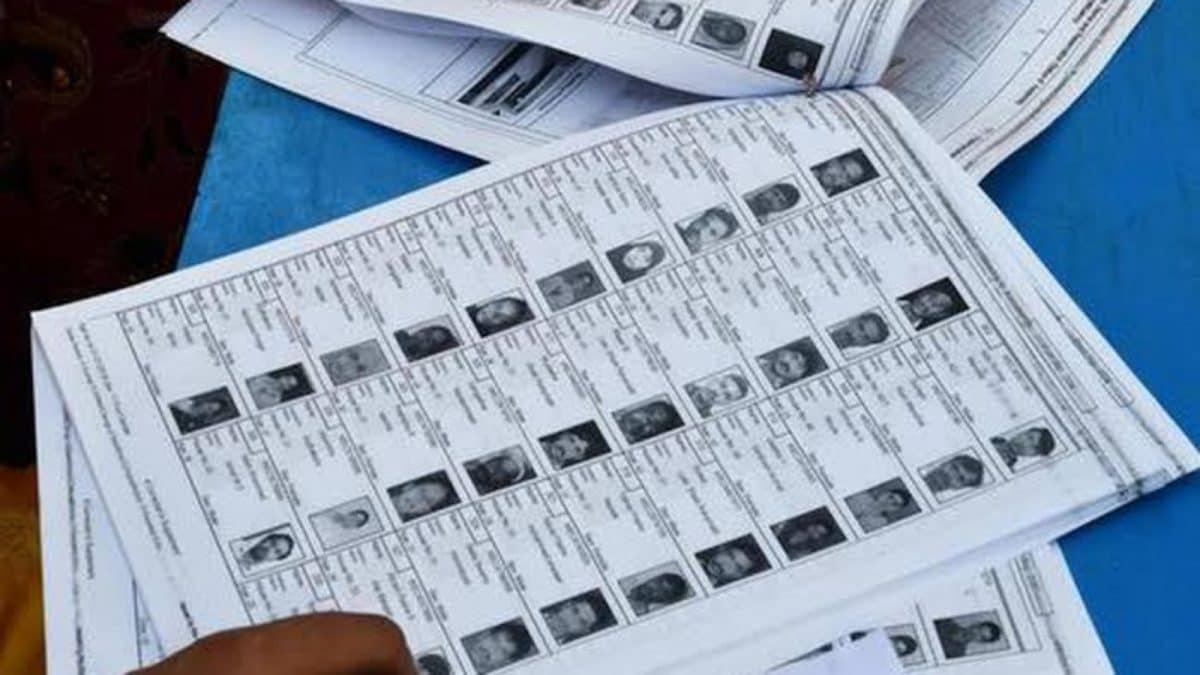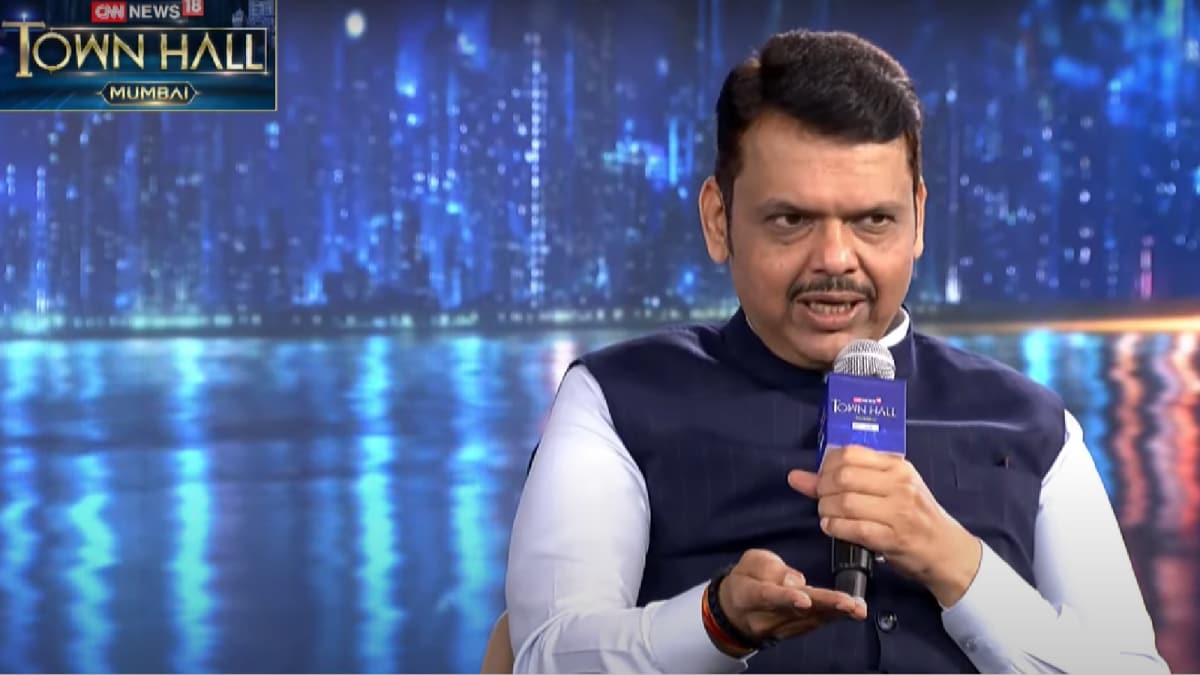Last Updated:
Jawaharlal Nehru, faced with severe opposition in Parliament during debate on IWT in 1960, said rejecting the treaty would have turned West Punjab (Pakistan) into a wilderness

Atal Bihari Vajpayee (left) and Pandit Jawaharlal Nehru. (File)
Speaking from the Red Fort on August 15, Prime Minister Narendra Modi described the ‘Indus Waters Treaty’ (IWT) signed by Jawaharlal Nehru with Pakistan in 1960 as unjust and one-sided. He said the treaty had caused unimaginable loss to India’s farmers. But do you know what happened when this issue was debated in Parliament in 1960?
Most MPs, even Congressmen, criticised the treaty. But their words fell on deaf ears. CNN-News18 dug into Parliament archives to read records of this debate.
On November 30, 1960, the Lok Sabha took up the Indus Waters Treaty for discussion. It was short but very intense. It revealed a deep divide between Jawaharlal Nehru’s government, which defended the treaty as pragmatic statesmanship, and a wide spectrum of MPs across parties, including Congressmen, who felt India had sacrificed too much to Pakistan.
The treaty had been signed without taking the Parliament or opposition leaders into confidence. By the time Parliament discussed the treaty, it was already ratified.
This was one of the sharpest criticisms Nehru faced in his career. Almost every speaker condemned the treaty—calling it unfair, a sell-out, or even a “second partition”. A young Atal Behari Vajpayee, the MP from Balrampur, framed it as a dangerous concession that wouldn’t bring lasting friendship.
The treaty had already been signed in Karachi by Prime Minister Jawaharlal Nehru and Pakistan’s military ruler President Ayub Khan on September 19, 1960, with the World Bank as guarantor.
Ten members moved the motion. Just two hours were allotted. It was clear from the very beginning that Parliament had been given no role in shaping the treaty—only in reacting to a fait accompli.
First, the context. After more than a decade of wrangling, the Indus Water Treaty was signed in 1960 with the World Bank as a player. The three eastern rivers — Ravi, Beas, Sutlej — would go to India. The three western rivers — Indus, Jhelum, Chenab — would go to Pakistan. But India would contribute Rs 83 crore (in sterling) towards replacement works in Pakistan.
On paper, Nehru hailed it as a model of cooperation. But MPs across the spectrum reacted with dismay.
The debate started with Surendra Mohanty, the MP from Dhenkanal (All India Ganatantra Parishad), insisting the Prime Minister himself must be present: “He was the signatory, he alone can explain why this agreement was made.”
Braj Raj Singh, an Independent MP from Firozabad, said the treaty had created “considerable concern in the country”.
Hafiz Mohammad Ibrahim, the irrigation minister, tried to reassure the House: “The Prime Minister will speak.”
The stage was set. Then began the wave of criticism.
Congressmen slammed Nehru
Harish Chandra Mathur, a Congressman, spoke like a member of the Opposition. His anger reflected the feeling in Rajasthan, which relied heavily on Indus waters.
Mathur called the treaty all to the disadvantage of India, all to the advantage of Pakistan. He said India was yielding too much: “Over-generosity at the cost of our own people is not statesmanship.”
Mathur read out headlines of newspapers across India that had condemned the treaty. He warned of perpetual annual losses of Rs 70-80 crore for his home state Rajasthan due to five million acre-feet of lost water. “Rajasthan has been very badly let down in this treaty,” he said.
Mathur did not stop here. He argued that India had surrendered step by step since 1948, and while Pakistan kept raising its demands, India yielded under pressure.
The Congress MP went on to criticise Nehru for not linking the water settlement to Kashmir: “If they are assured of water, Kashmir should cease to be a problem. Has Kashmir ceased to be a problem,” he asked.
His words resonated strongly with the House with more Congressmen standing up to counter Nehru.
Asoka Mehta, a respected intellectual in the Congress, delivered one of the sharpest speeches by comparing the treaty to a “second partition”, saying, “We are reopening all the wounds of 1947…this is being done again with the signature of our Prime Minister”.
He added that after 12 years of talks, India had settled on terms “which cannot be justified as fair”.
Mehta made a sharp observation — that the treaty gave 80% of waters to Pakistan, only 20% to India — worse than the earlier 75:25 proposal. Criticising Nehru’s haste, Mehta said, “No government has the right to make mistakes twice. That is why the country is deeply and profoundly agitated”. He said after the distribution of waters under this treaty Pakistan will permit very valuable water to flow into the seas.
As Mehta said the debate itself was being rushed and termed just two hours as too little for a matter that has agitated the entire country, another Congressman from Bengal, A.C. Guha, joined cause with him.
Guha focused on the economic and financial imbalance — saying India had 26 million acres in the Indus basin, but only 19% irrigated, while Pakistan’s 39 million acres were 54% irrigated.
“By land share, India should have received 40% of waters. Instead, it got only 20%. Pakistan received Rs 400+ crore in grants, India just Rs 27 crore in loans,” Guha said. He added that “the more regrettable thing is that waters which India would need badly would be allowed to flow into the sea unutilised and yet we shall be denied the opportunity of developing our own land with that water”.
The Congressman also criticised paying Rs 83 crore in sterling to Pakistan when India faced a foreign exchange crisis. He termed it “the height of folly”. He castigated Nehru further, saying whenever we negotiate with Pakistan, our interests are sacrificed to placate them.
Vajpayee led the charge
A young Vajpayee, still in his early 30s, gave a sharp, pointed intervention, highlighting how government had earlier announced stoppage of water to Pakistan by 1962, yet now it was conceding permanent rights. “Either that announcement was wrong, or this treaty is wrong,” Vajpayee said.
He quoted Pakistan President Ayub Khan claiming India had conceded joint control of rivers: “Joint control comprehends joint possession,” Vajpayee warned. “Parliament is not taken into confidence when such agreements were done,” he said.
He also questioned Nehru’s motives: “Why did Nehru go so far? This is not the way to build harmony.” Vajpayee said good relations can only be built on justice, not appeasement and criticised the government for bypassing Parliament on issues of security and economy.
Vajpayee concluded that the treaty was “not in the interest of India”, and that it would not bring lasting friendship.
He was backed by an Independent MP, Brajraj Singh who accused the government of selling India’s pride. Singh also quoted Ayub Khan’s provocative statement after the treaty — that Pakistan should control the upper reaches of rivers. He lamented that Parliament was not even informed that ratification of the treaty had been completed.
K.T.K. Tangamani, the Communist party MP, also zeroed in on lack of consultation. He said Parliament had been in session until 9 September; the treaty signed on 19 September, so “surely the House could have been taken into confidence?” He also called the treaty as a one-sided give, not give-and-take.
Nehru’s reply: A lonely defence
Finally, Nehru rose to speak. His tone was weary, almost depressed, but firm as he called it a “good treaty for India”.
Nehru rejected the “second partition” claim of his fellow Congressmen as “loose, meaningless language” and asked: “Partition of what? A pailful of water?”
Nehru also insisted that such international treaties could not be managed by constant parliamentary approval. “There were mountains of papers, a dozen approaches, ten years of struggle. We had to take a call,” Nehru argued.
He also justified that India had to pay Pakistan to replace lost waters. “We purchased a settlement, we purchased peace,” Nehru said, admitting Pakistan had initially demanded Rs 300 crore, but India had settled for Rs 83 crore.
Nehru also warned that rejecting the treaty would have turned West Punjab into a wilderness, destabilising the subcontinent. He appealed for a broader vision: “When we deal with mighty things like relations between nations, let us not adopt a narrow approach.”
Closing his case, Nehru said India had made substantial and profitable gains, even if critics only saw losses.
But he was pressed for time—he left the chamber to meet the visiting Crown Prince of Japan, leaving behind an unsatisfied House.
Even after Nehru’s defence, MPs were unconvinced. Vajpayee remarked that most members “still could not understand why India signed such a treaty”.
The result
The debate ended without a vote, the treaty already ratified. But the debate showed rare unity across opposition and ruling benches in criticising Nehru. Nehru appeared isolated, defending the treaty on moral and internationalist grounds, while the House spoke in the language of national interest and suspicion of Pakistan.
For young leaders like Vajpayee, this was an early stage to craft the narrative that Nehru was too soft, too idealistic, and too ready to sacrifice Indian interests. Most MPs warned that the treaty was a sell-out, a “second partition”, and an appeasement. But Nehru said the treaty was pragmatic, necessary, and good for India in the long run.
Finally, after 65 years, Narendra Modi decided to put the treaty into abeyance after the Pahalgam terror attack.

Aman Sharma, Executive Editor – National Affairs at CNN-News18, and Bureau Chief at News18 in Delhi, has over two decades of experience in covering the wide spectrum of politics and the Prime Minister’s Office….Read More
Aman Sharma, Executive Editor – National Affairs at CNN-News18, and Bureau Chief at News18 in Delhi, has over two decades of experience in covering the wide spectrum of politics and the Prime Minister’s Office…. Read More
view comments
Read More








